
Meghan Rosen is a staff writer who reports on the life sciences for Science News. She earned a Ph.D. in biochemistry and molecular biology with an emphasis in biotechnology from the University of California, Davis, and later graduated from the science communication program at UC Santa Cruz. Prior to joining Science News in 2022, she was a media relations manager at the Howard Hughes Medical Institute. Her work has appeared in Wired, Science, and The Washington Post, among other outlets. Once for McSweeney’s, she wrote about her kids’ habit of handing her trash, a story that still makes her (and them) laugh.

Trustworthy journalism comes at a price.
Scientists and journalists share a core belief in questioning, observing and verifying to reach the truth. Science News reports on crucial research and discovery across science disciplines. We need your financial support to make it happen – every contribution makes a difference.
All Stories by Meghan Rosen
-
 Health & Medicine
Health & Medicine‘The Power of Prions’ explores misfolded proteins’ role in brain diseases
Michel Brahic’s new book spotlights prions’ role in diseases such as Alzheimer’s and Parkinson’s.
-
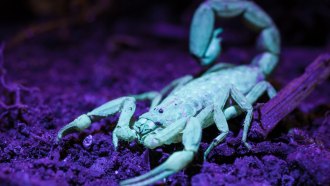 Life
LifeBackyard explorers discovered 15 new examples of glowing life
New finds in the Finding Fluorescence site include a Japanese beetle with a glowing blue mouth and a mushroom that gleamed bright red under its cap.
-
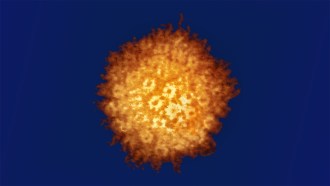 Health & Medicine
Health & MedicineA viral gene drive could offer a new approach to fighting herpes
A new gene drive can copy and paste itself into the genomes of herpes simplex viruses in mice. The end goal is a version that disables the virus in humans.
-
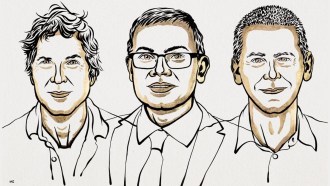 Chemistry
ChemistryWork on protein structure and design wins the 2024 chemistry Nobel
David Baker figured out how to build entirely new proteins. Demis Hassabis and John Jumper developed an AI tool to predict protein structures.
-
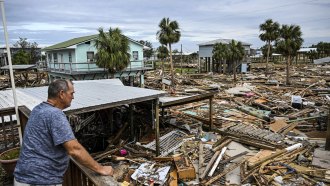 Health & Medicine
Health & MedicineA hurricane’s aftermath may spur up to 11,000 deaths
Hurricanes like Helene may indirectly cause deaths for years. Stress, pollution and a loss of infrastructure could all contribute to tropical cyclone fatalities.
-
 Health & Medicine
Health & MedicineSemaglutide may reduce opioid overdoses, a new study suggests
A study of people with type 2 diabetes and opioid use disorder suggests that the key ingredient in Ozempic and Wegovy shows promise against addiction.
-
 Life
LifeThis biophysicist’s work could one day let doctors control immune cells
The Stanford biophysicist thinks that understanding the mechanics of cell movement could allow scientists to manipulate immune cells.
-
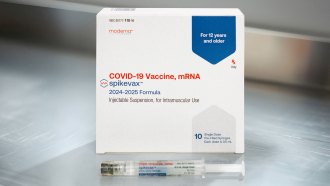 Health & Medicine
Health & MedicineNew COVID-19 booster shots have been approved. When should you get one?
The vaccines target the omicron variants currently circulating in the United States.
-
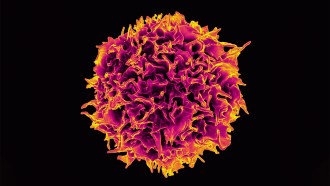 Health & Medicine
Health & MedicineA newly approved ‘living drug’ could save more cancer patients’ lives
Tumor-infiltrating lymphocyte, or TIL, therapy is the first T cell treatment for solid tumors. It fights melanoma and maybe other cancers too.
-
 Health & Medicine
Health & MedicineRogue antibodies may cause some long COVID symptoms
Tissue-targeting antibodies have been a key suspect in long COVID. Now, two studies show that antibodies from patients can cause symptoms in mice.
-

Calling gun violence a public health crisis is a ‘first step’ to fight it
Three public health experts weigh in on the U.S. surgeon general’s ground-breaking call to label shootings a health problem.
-
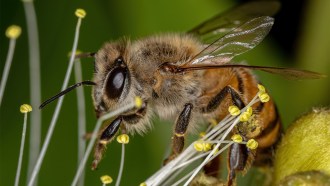 Health & Medicine
Health & MedicineHoneybees can “smell” lung cancer
Bees can detect the scent of lung cancer in lab-grown cells and synthetic breath. One day, bees may be used to screen people’s breath for cancer.